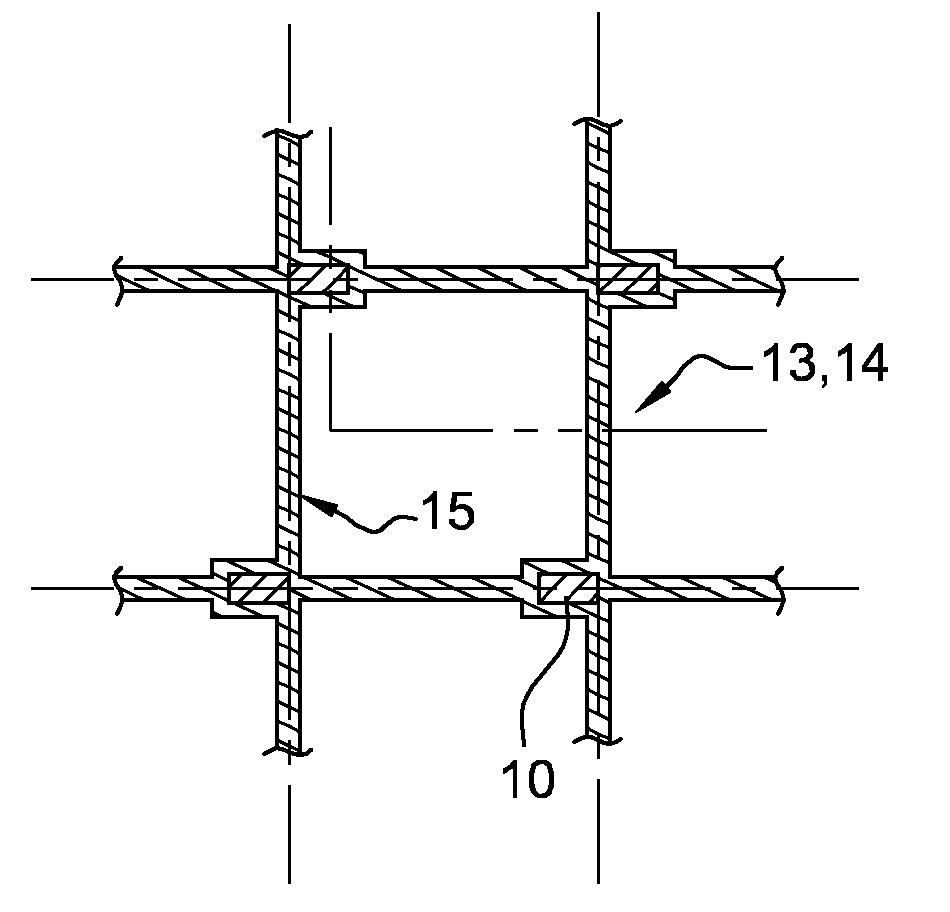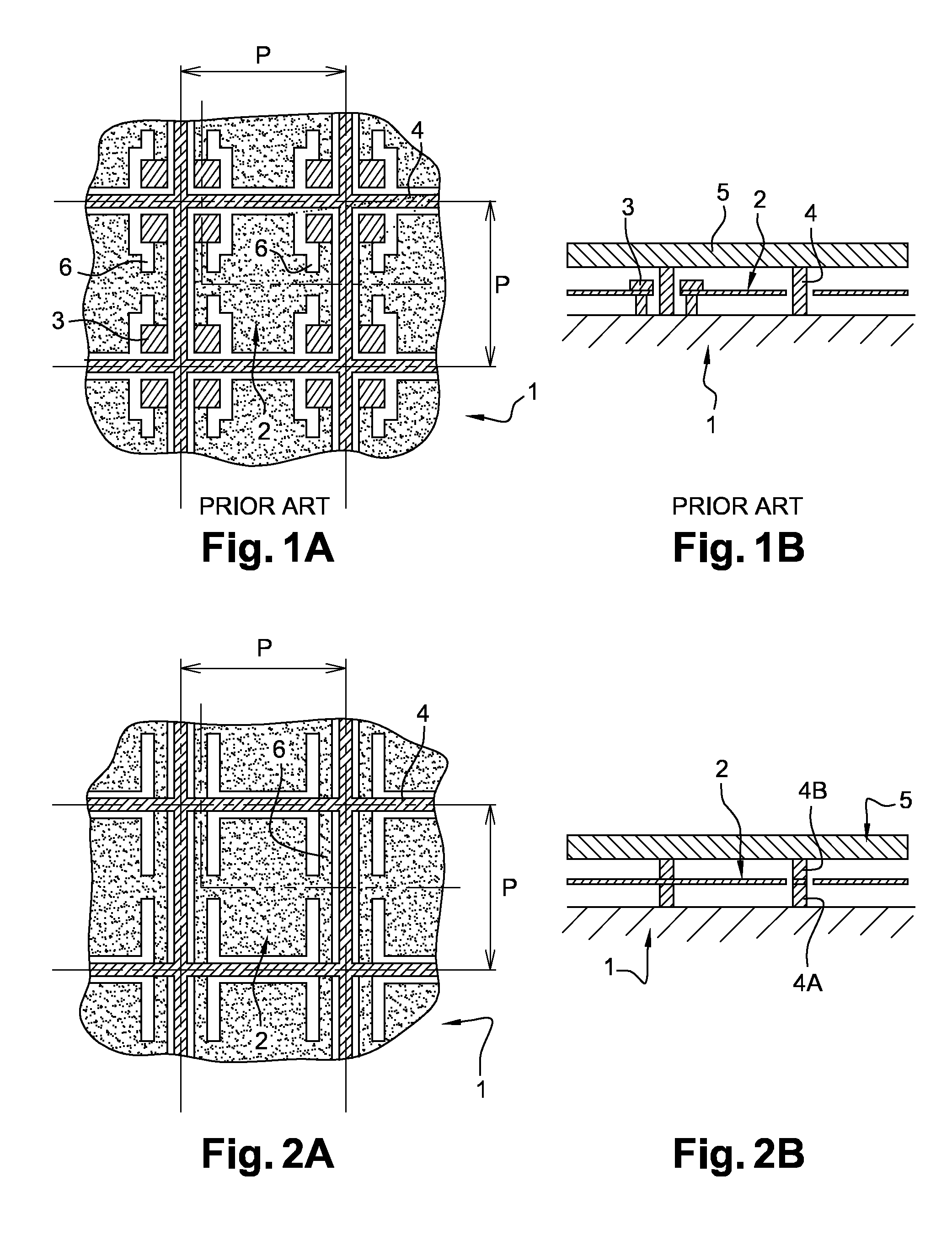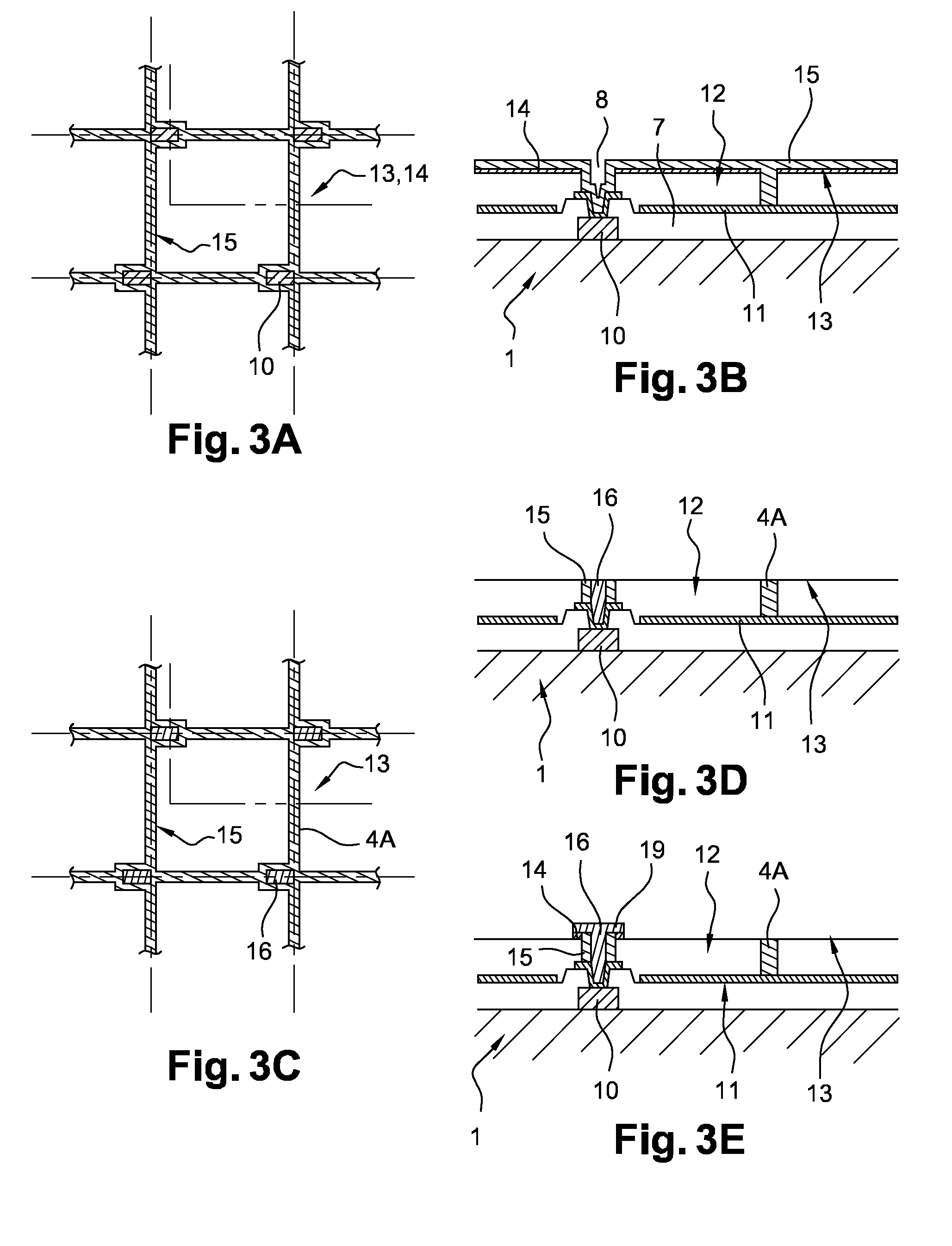Electromagnetic radiation detector with micro-encapsulation, and device for detecting electromagnetic radiation using such detectors
- Summary
- Abstract
- Description
- Claims
- Application Information
AI Technical Summary
Benefits of technology
Problems solved by technology
Method used
Image
Examples
Embodiment Construction
[0082]FIG. 2A schematically shows a design according to the invention in a form devoid of functional elements that are used for electrically wiring, exhausting and hermetically sealing the micro-sites. These elements are as follows:[0083]initial substrate 1 on which all the structures are collectively formed;[0084]sensitive membranes 2 of the detectors in an array with a repetition pitch p, supported by their support arms 6 which extend as far as peripheral walls 4 into which they are inserted;[0085]walls or side walls 4 formed by superposed parts 4A and 4B;[0086]upper covers or windows 5.
[0087]FIG. 2B supplements the description with regard to the insertion of support arms 6 of membranes 2. The anchoring structures, in their traditional form shown schematically in FIGS. 1A and 1B, have now been eliminated and arms 6 extend as far as the joint between the two parts 4A and 4B of walls 4 which act as anchoring structures formed on the axis of symmetry between sensitive sites, as is cu...
PUM
 Login to View More
Login to View More Abstract
Description
Claims
Application Information
 Login to View More
Login to View More - R&D
- Intellectual Property
- Life Sciences
- Materials
- Tech Scout
- Unparalleled Data Quality
- Higher Quality Content
- 60% Fewer Hallucinations
Browse by: Latest US Patents, China's latest patents, Technical Efficacy Thesaurus, Application Domain, Technology Topic, Popular Technical Reports.
© 2025 PatSnap. All rights reserved.Legal|Privacy policy|Modern Slavery Act Transparency Statement|Sitemap|About US| Contact US: help@patsnap.com



